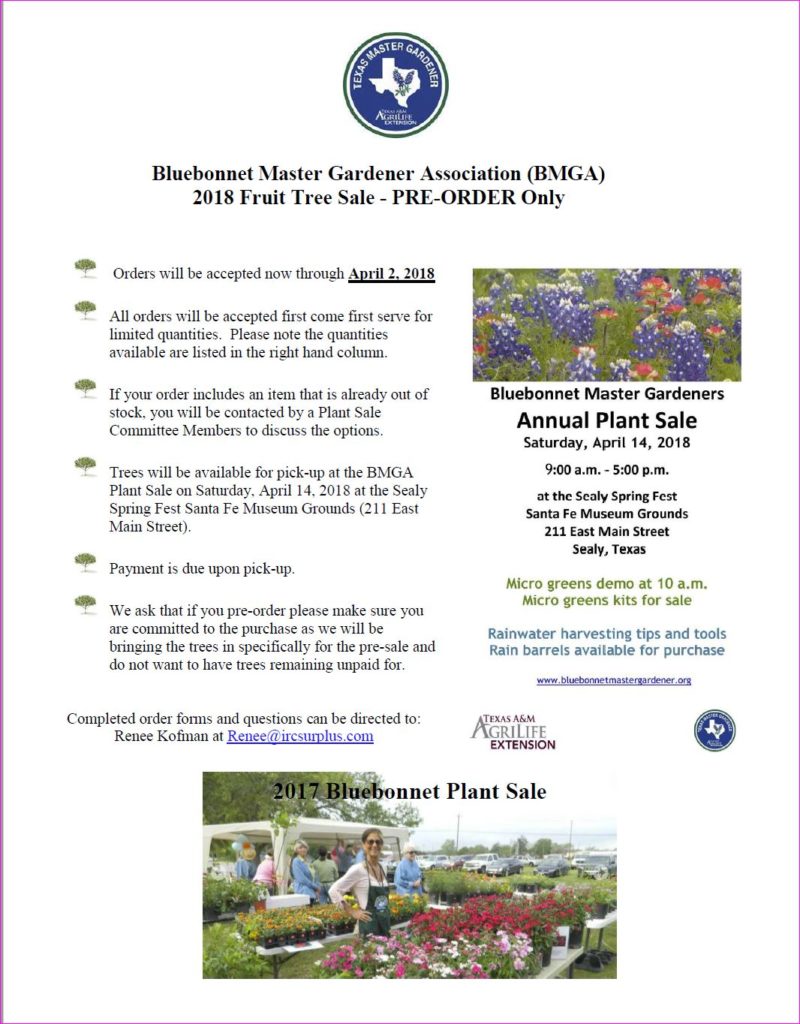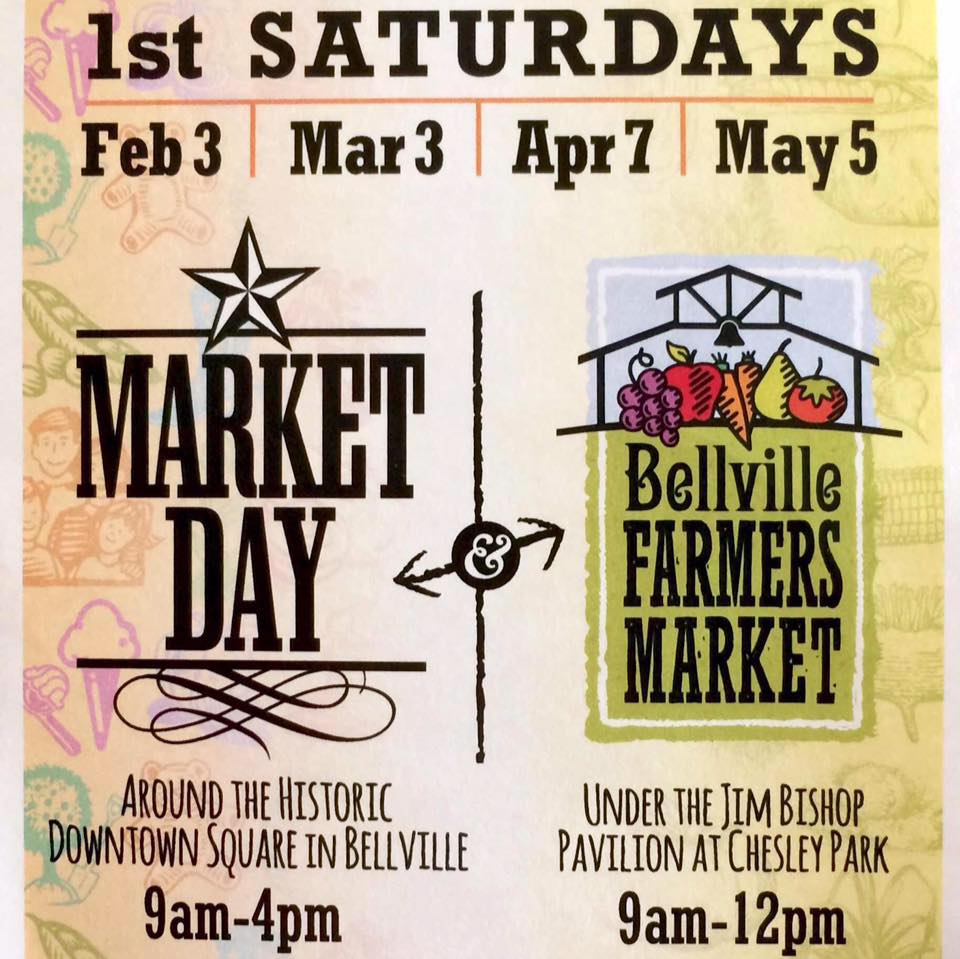The Bluebonnet Master Gardener Association has kicked-off its 2020 fruit tree sale! Only varieties suitable for growing in the Austin, Colorado, Fayette, and Washington Counties are offered.
Pick up your trees at either of these locations:
March 20-21, 2020
9:00 a.m. to 2:00 p.m.
1333 Downey Rd., Sealy, Texas
March 24, 2020
9:00 a.m. to 2:00 p.m.
Fayette County AgriLife Extension Office
255 Svaboda Ln., La Grange, Texas
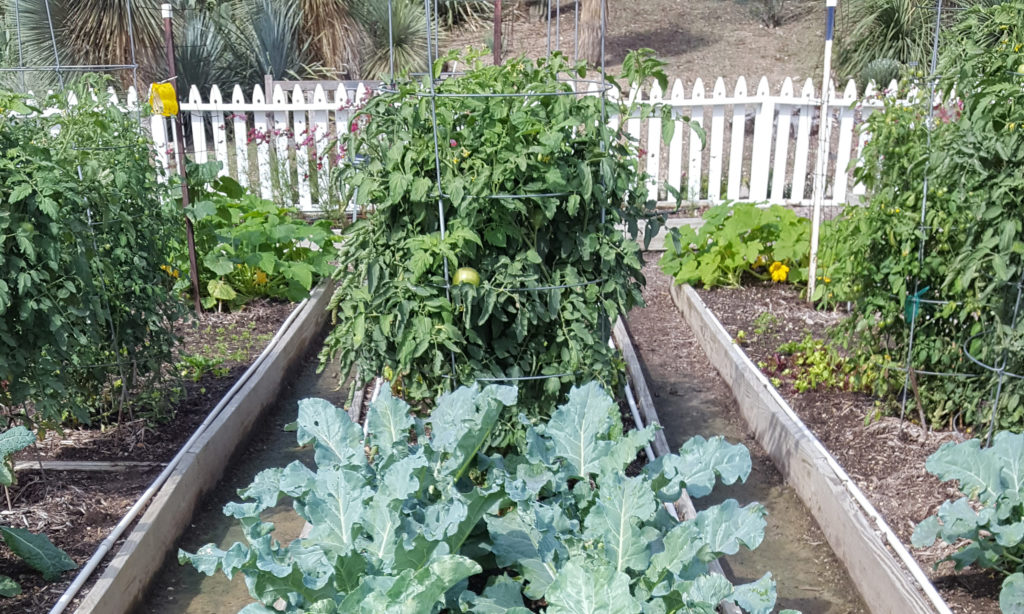
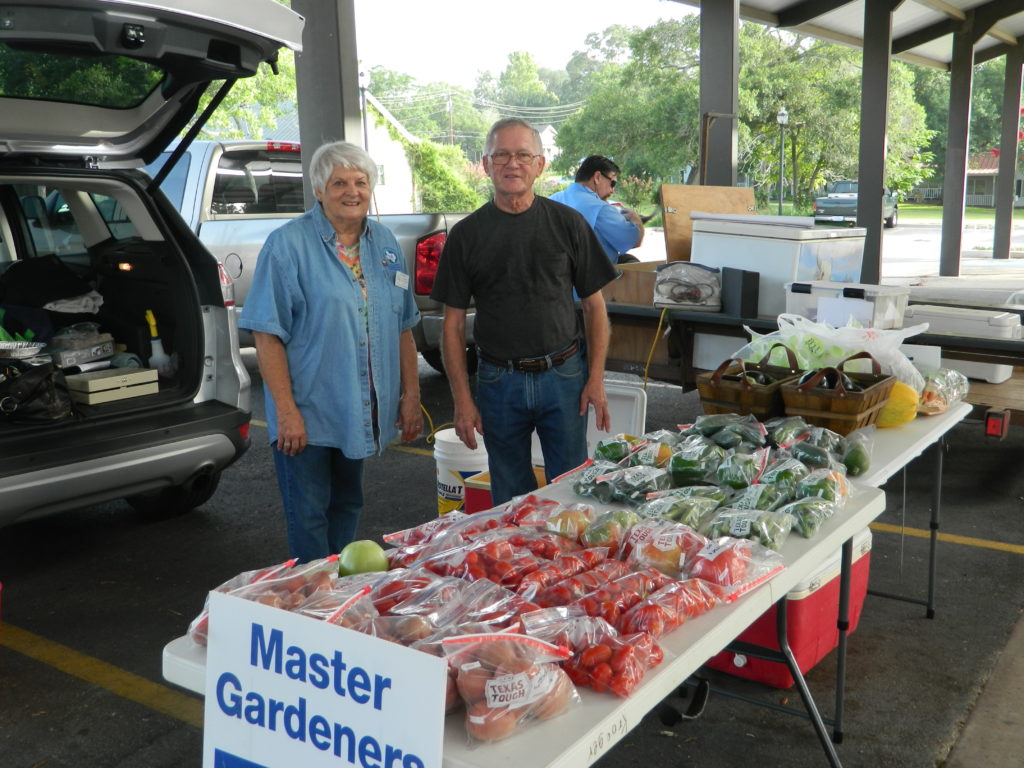
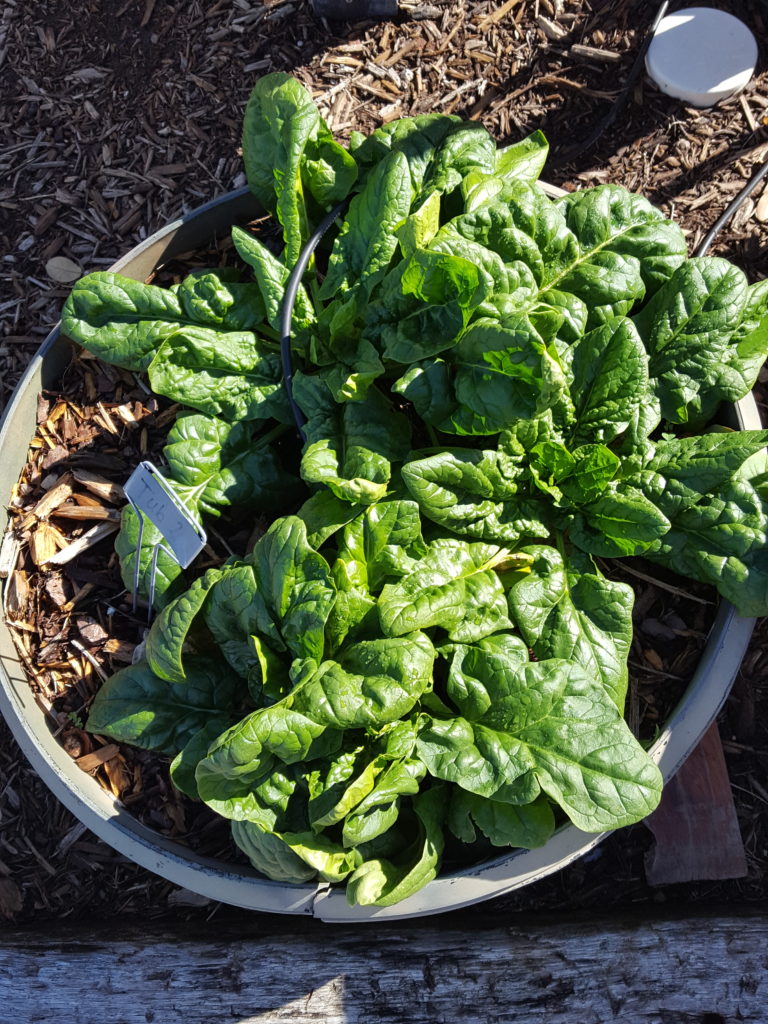
 The BMGA Fruit Tree Pre-Sale is Extended!
The BMGA Fruit Tree Pre-Sale is Extended!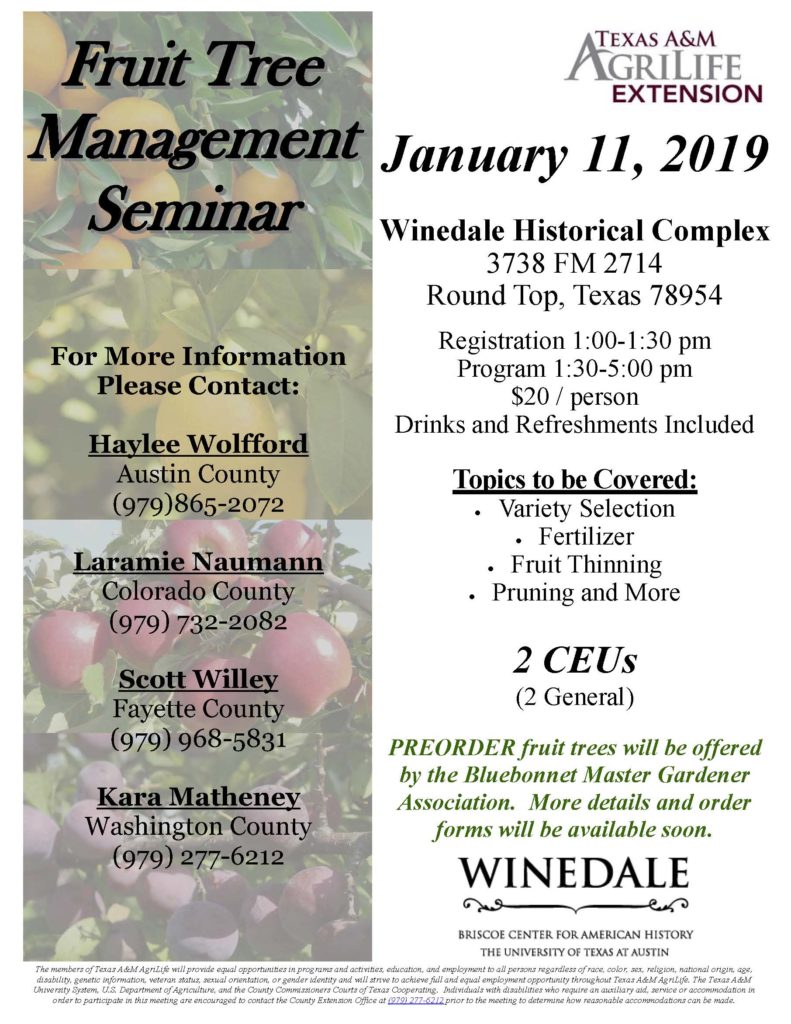
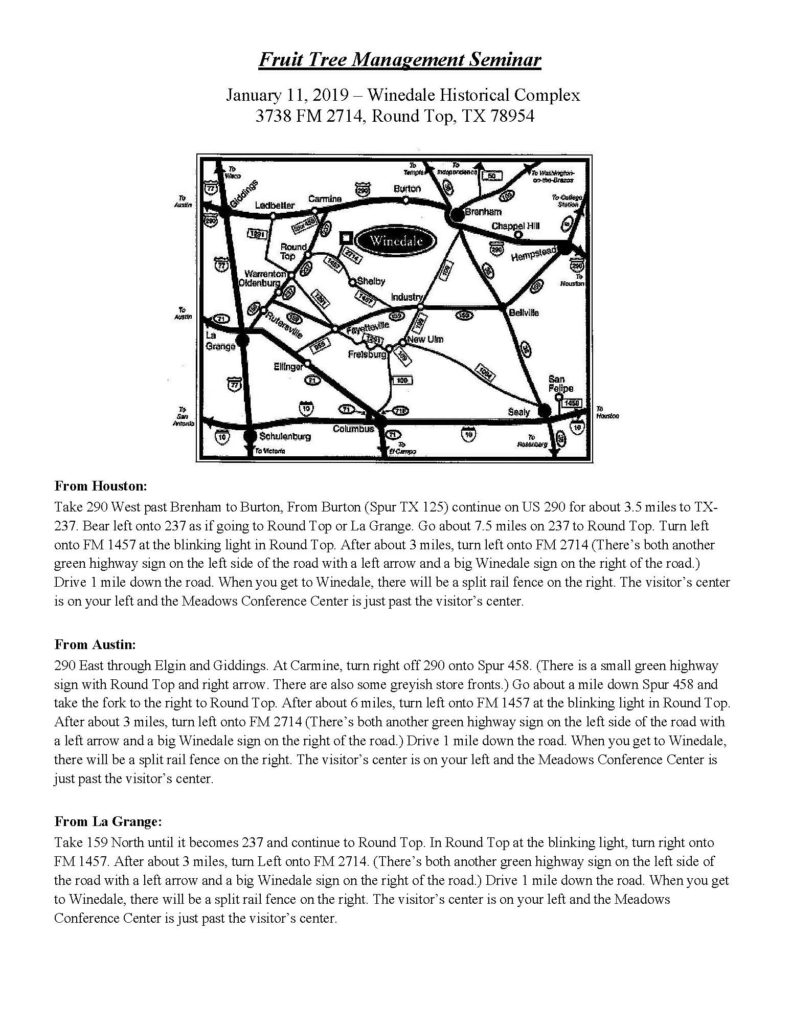
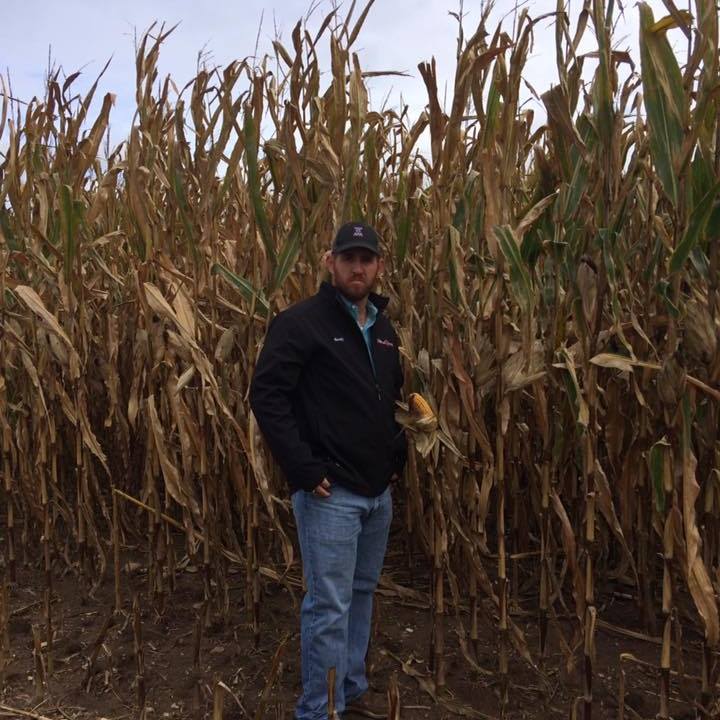

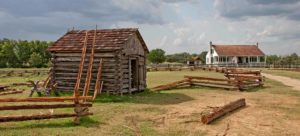 Washington on the Brazos State Park is hosting a Farmer’s Market on the 3rd Saturday of April-July, 2018. Master Gardeners interested in selling their bumper crop of produce may set up in a 10’ x 10’ space under the live oaks in front of the park Visitor’s Center for $10.00 per Saturday. Or, come out and shop an supported our local farmers and gardeners.
Washington on the Brazos State Park is hosting a Farmer’s Market on the 3rd Saturday of April-July, 2018. Master Gardeners interested in selling their bumper crop of produce may set up in a 10’ x 10’ space under the live oaks in front of the park Visitor’s Center for $10.00 per Saturday. Or, come out and shop an supported our local farmers and gardeners.

